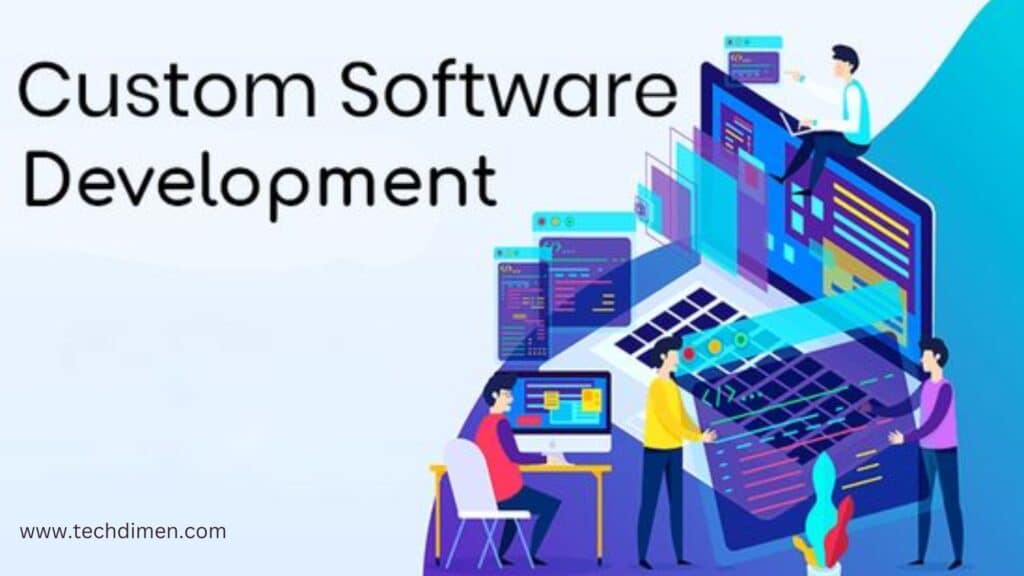In today’s digital first world, businesses can no longer rely on one size fits all software. Off the shelf solutions often fall short when it comes to addressing unique processes, growth goals, or industry specific challenges. That’s why bespoke technology has become the go to for companies wanting custom software built precisely to their needs. Think of bespoke software like a tailor made suit crafted specifically to fit you perfectly, rather than grabbing something off the rack.
What Exactly Is Bespoke Technology?
When people talk about bespoke technology, they mean custom built software solutions designed exclusively for a particular organization. Unlike generic programs available to the masses, bespoke software aligns seamlessly with a company’s workflow, objectives, and user experience demands. By building applications from the ground up, developers ensure every feature fits the business logic like a glove. This level of personalization empowers companies to automate complex processes, improve productivity, and innovate without limits.
Why Are More Businesses Choosing Bespoke Solutions?

There’s a growing frustration with off the shelf software. Often, these generic tools come with unnecessary features that clutter interfaces and lack the flexibility needed for specialized tasks. For example, a retailer using standard eCommerce software may struggle to integrate unique inventory or loyalty programs. Meanwhile, companies in finance or healthcare face strict regulatory environments requiring tailored compliance features that mass market software simply can’t handle.
Choosing bespoke technology means gaining control. It enables companies to modernize legacy systems without painful compromises and improve internal workflows in ways that off the shelf solutions never envisioned. Plus, businesses enjoy the advantage of a strategic digital transformation, focusing on agility and scalability instead of constant workaround fixes.
The Tangible Benefits of Bespoke Technology
One of the biggest draws of bespoke software is the precision it offers. Since it’s built around a company’s unique requirements, there’s no need to bend your processes to fit the software’s capabilities. This tight alignment drives operational efficiency and cuts down on human error.
Integration is another major advantage. Bespoke solutions connect smoothly with existing systems and platforms, avoiding the pitfalls of data silos and redundant manual work. Moreover, custom built applications often feature stronger security because they avoid the common vulnerabilities found in widely used off the shelf software. Scalability is baked into the design, allowing your software to grow alongside your business without costly overhauls.
Ownership matters too. Companies have full control over updates, features, and user experience, ensuring the technology evolves alongside changing business needs. This flexibility often results in a higher return on investment despite the upfront cost, thanks to reduced licensing fees and improved performance.
How Bespoke Technology Transforms Different Industries

Across sectors, bespoke software is driving real change. In healthcare, for instance, custom electronic medical records and telehealth platforms are improving patient care by integrating diagnostic devices and wearable tech. These systems enable personalized treatment plans and smoother data sharing between providers.
Financial institutions rely on bespoke technology for sophisticated fraud detection, risk management, and regulatory compliance software tailored to their specific risk profiles and operational demands. Meanwhile, retail brands build unique eCommerce platforms with custom loyalty programs, inventory management, and personalized customer experiences that off the shelf solutions cannot match.
Manufacturers use bespoke ERP systems integrated with IoT devices for predictive maintenance and workflow automation, increasing uptime and reducing costs. Education providers design personalized learning management systems that adapt to student progress and compliance requirements.
One example highlights a mid sized retailer that replaced three separate software tools with a single bespoke system to handle sales and inventory. Within six months, the company reduced inventory waste by over 30 percent, showcasing the direct impact of tailored technology.
the Bespoke Software Development Journey

Creating bespoke technology is a carefully structured process. It kicks off with discovery workshops and detailed consultations to map existing workflows, pain points, and strategic goals. This phase ensures the development team understands the company’s unique environment before any code is written.
Next comes UX/UI design, where interactive prototypes help refine the user experience. This step is crucial because bespoke software must be intuitive to maximize adoption and productivity. Agile development follows, with iterative sprints allowing constant feedback and adjustments.
Extensive testing ensures that every feature works flawlessly and securely. This includes unit testing, integration checks, performance benchmarking, and user acceptance testing. Deployment often leverages cloud infrastructure and modern CI/CD pipelines for seamless rollouts and scaling.
Finally, comprehensive training and ongoing support help teams transition smoothly, making sure the bespoke technology delivers its full potential over time.
Challenges to Keep in Mind with Bespoke Software
Building bespoke technology is rewarding but comes with challenges. The initial investment typically exceeds the cost of off-the-shelf software. Development timelines can stretch from four to eight months, depending on complexity. Without disciplined project management, scope creep can occur, inflating costs and delaying delivery.
However, these risks can be managed by starting with a minimum viable product to validate core functionality early on. Agile methodologies help keep projects on track and adaptable. Choosing an experienced development partner with a solid track record is vital for success.
When to Choose Bespoke Over Off the Shelf Software
Deciding between bespoke and off the shelf software depends on your business needs. If your operations involve unique workflows, complex integrations, or require scalability and security tailored to your growth, bespoke technology is the better choice. Off the shelf solutions offer speed and affordability initially but can limit innovation and cause costly workarounds down the road.
Consider whether your existing processes demand specialized functionality or if a generic product will suffice. Also, think about your long term goals custom software is an investment in future proofing your business and gaining competitive advantage.
Taking the First Step Toward Bespoke Technology

Starting your bespoke journey begins with an honest assessment of your current systems. Identify bottlenecks, inefficiencies, and pain points that digital transformation could solve. Clearly define your must have features and budget for development and ongoing maintenance.
Finding the right development partner is critical. Look for firms that understand your industry and embrace collaboration. Begin with a pilot or MVP to test assumptions and reduce risk before committing to a full scale build. Avoid waiting too long to innovate, as delays can mean lost market opportunities.
The Future of Bespoke Technology
Bespoke technology continues to evolve, shaped by advances in artificial intelligence, automation, and cross platform development. AI powered software now offers real time personalization by learning from user behavior. Low code and no code platforms accelerate delivery without sacrificing customization. Additionally, blockchain and decentralized systems are opening new avenues for secure, transparent applications.
FAQS :Bespoke Technology
What is Bespoke Technology?
Bespoke Technology refers to custom-built technology solutions designed specifically to meet the unique needs and requirements of a particular business or user. Unlike off the shelf software or hardware, bespoke systems are tailored to offer personalized functionality, greater efficiency, and a competitive edge.
How is different from off the shelf solutions?
Bespoke Technology is custom-made, while off the shelf solutions are pre-built and designed for general use. Bespoke solutions align precisely with a company’s workflows and goals, providing greater flexibility, scalability, and control compared to generic alternatives that may require compromising on features or adapting business processes.
Who can benefit from Bespoke Technology?
Businesses of all sizes across various industries can benefit from bespoke solutions. It is especially valuable for companies with complex operations, unique service models, or specific compliance requirements. Startups aiming to differentiate their product, or enterprises streamlining internal systems, often find bespoke development ideal.
What are the main advantages of Bespoke Technology?
Bespoke Technology offers several advantages, including full customization, better integration with existing systems, improved security, and scalability. It also provides a long term return on investment as businesses are not tied to licensing fees or feature limitations found in commercial products.
Is Bespoke Technology expensive?
While initial development costs may be higher than off-the-shelf products, bespoke solutions can be more cost-effective over time. They reduce the need for constant upgrades, support subscriptions, or third-party modifications. Furthermore, they are designed to evolve with your business, potentially saving money in the long run.
How long does it take to develop a Bespoke Technology solution?
Development time depends on the complexity of the project, the number of features, integration requirements, and the development approach. Projects can range from a few weeks for a basic application to several months for enterprise-grade systems. A detailed discovery and planning phase helps estimate timelines accurately.
Is Bespoke Technology secure?
Yes, bespoke systems are often more secure than mass-market software because they are built with your specific security needs in mind. You control the development process, data storage, and access protocols, reducing exposure to common vulnerabilities found in widely-used platforms.
Can Bespoke Technology be integrated with existing systems?
Absolutely. Bespoke solutions are typically designed with integration in mind, ensuring they work seamlessly with your current tools, databases, or third-party applications. This enables smoother workflows and maximized productivity without disrupting your existing infrastructure.
What kind of support is available for Bespoke Technology?
Support for bespoke solutions usually comes directly from the development team or vendor who built the product. This means faster response times, better understanding of your system, and more effective problem resolution. Ongoing maintenance, updates, and feature enhancements are often part of the service agreement.
How do I get started with Bespoke Technology?
To begin, identify your business challenges or goals that off-the-shelf solutions can’t solve. Then consult with a bespoke technology provider who can analyze your needs, propose a tailored solution, and guide you through the planning, development, and implementation process.
Final Thoughts
If you want technology that fits your business like a glove and can scale with your ambitions, bespoke software is a smart investment. It delivers unmatched flexibility, tighter integration, and better user engagement compared to generic alternatives. Though it requires higher initial commitment, the payoff in efficiency and ROI makes it worthwhile.
Evaluate your current infrastructure, identify unique needs, and explore how bespoke technology can transform your operations. The right custom solution could be the key to unlocking your business’s full potential.

Jhon AJS is a tech enthusiast and author at Tech Dimen, where he explores the latest trends in technology and TV dimensions. With a passion for simplifying complex topics, Jhon aims to make tech accessible and engaging for readers of all levels.







